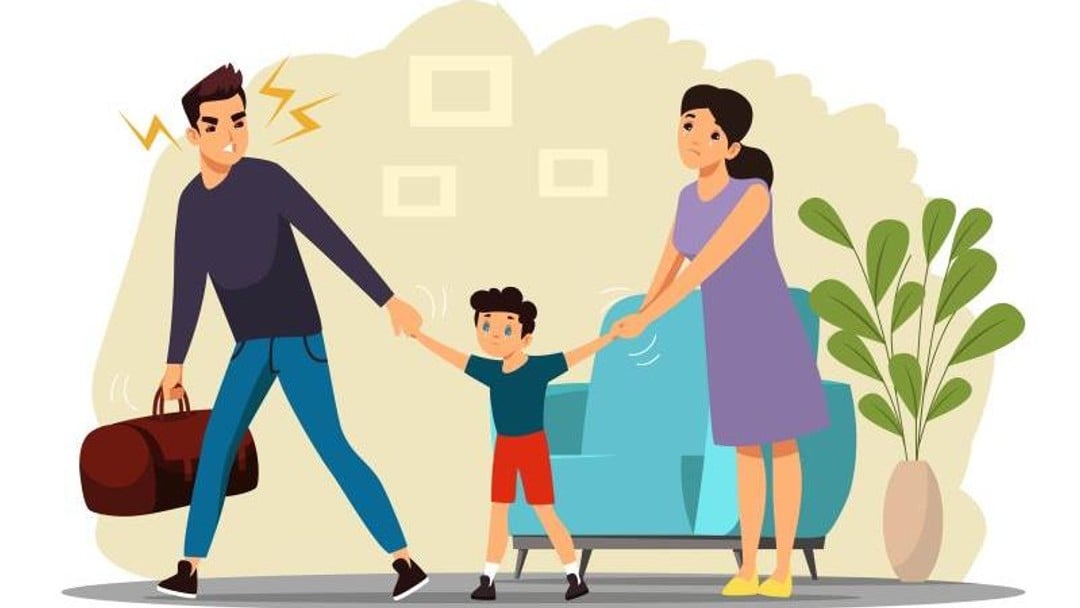Quarterly statistics suggest family law court system still plagued by backlogs and delays

The introduction of 'no-fault' divorce had led to a “bulge” in cases – Law Society
Children who could be placed in the care of their local authority are facing delays of almost a year for their cases to be started, according to the latest family court statistics (January to March 2022).
“We have persistently voiced our concern about the significant backlogs in the family courts – which pre-date the pandemic. Delays can cause significant harm as well as uncertainty for the parties involved,” said Law Society president, I. Stephanie Boyce.
On average, care cases took 49 weeks in January to March 2022, up six weeks compared to the same quarter in 2021.
Boyce said: “We are also hearing of significant delays in private law children cases and the subsequent impact on children’s contact with their parents.
“HM Courts & Tribunals Service (HMCTS) has previously estimated that it may take three years to return to pre-pandemic levels, which is very worrying, particularly for cases that concern children and family matters.
“The UK government must ensure, so far as possible, that there are sufficient fee-paid and full-time judges to deal with existing and new caseloads”.
Boyce said that members working in family law continue to report high number of litigants in person (LiPs). She said this was no surprise since cuts to legal aid have driven up the number of people who have no choice but to represent themselves.
However, Boyce said HMCTS still provide no data on litigants in person, which is essential for assessing the impact of legal aid cuts on individuals and the court system.
“The number of LiPs is not within the control of the courts, but having data on the scale of unrepresented people using the family courts would enable more efficient use of court capacity across the country.
“In most cases, LiPs require more time and support from the court time, which is likely to slow down the system and increase overall costs. Re-instating legal aid contracts would make a cost-effective contribution to resolving the backlogs in the family courts.
“Restoring early legal advice for family law cases would also mean fewer cases would go to court. Instead, solicitors could assist negotiated settlements, refer clients to mediation and better manage client expectations”.
She said the family courts are under immense pressure, and people with private law cases are experiencing unprecedented and unacceptable delays.
However, statistics for January to March 2022 show there were an estimated 68,134 new family law cases – down 6 per cent compared to the same period in 2021.
Meanwhile there were 30,154 divorce petitions filed – with divorce petitions and matrimonial cases down around two per cent, while domestic violence cases were down two per cent, compared to the same period last year.
Boyce said the introduction of ‘no-fault’ divorce had led to a “bulge” in cases.
There were 12,978 new divorce applications in April 2022. 10,207 of which were sole applications and 2,771 were joint applications. By comparison, there were 6,764 digital divorce applications and 1,965 paper applications in 2021.
“A thorough investigation should be conducted on the effective operation of the courts, the increase in backlogs and the impact this is having on families having to represent themselves,” concluded Boyce.
Anthony Kiernan, consultant and head of international family law at Thomas Mansfield commented: “It is obviously positive that spouses are no longer forced to set out horrible statements about their partners to end a marriage. Unfortunately, the new law will not have any impact on resolving children or financial matters, and that is where the real problems are.
“To be fair, the statistics for the stated period do show a decrease in financial remedy applications (16%). However, this may only be temporary and, in any event, that slight drop in one quarter does not change the underlying problems.
“Resolving issues about children and sorting out financial claims is often a much bigger, traumatic and difficult part of ending the marriage. They are all dealt separately from the divorce and are not necessarily dependent on one another”.
Kiernan said successive governments had “decimated” the court system, reducing the number of courts, full-time judges and other staff, “obliterating legal aid and reforming the divorce process”. He added that the system is “falling apart if we are not already there. And delay is endemic”.
“In the Southeast, for example, delay in the court process is now so bad that lawyers frequently advise clients to partially opt out of the system and engage in arbitration. For those who can afford it arbitration is much speedier and can be cheaper in the long run. Even then arbitration awards must be sanctioned by the courts, but it is still much quicker than having to wait for a court hearing.
“But it doesn’t have to be like this. There is also an option of alternative dispute resolution, including mediation, collaborative law and the old-fashioned practice of negotiating around a table. These can be cheaper, quicker and most importantly far less stressful ways of ending a marriage”.

